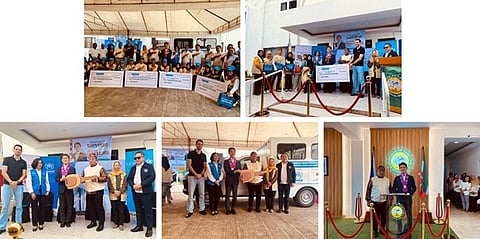
- NEWS
- the EDIT
- COMMENTARY
- BUSINESS
- LIFE
- SHOW
- ACTION
- GLOBAL GOALS
- SNAPS
- DYARYO TIRADA
- MORE

The Government of Japan reaffirmed its commitment to inclusive development in the Bangsamoro Autonomous Region in Muslim Mindanao (BARMM) with the handover of mobile equipment and advocacy kits to improve digital birth registration for stateless and vulnerable communities.
Japanese Ambassador Endo Kazuya led the turnover ceremony on 16 June, joined by Tawi-Tawi Governor Yshmael Sali, BARMM Minister for Social Services and Development Raissa Jajurie, and UN High Commissioner for Refugees (UNHCR) Philippines Officer-in-Charge Atty. Lindsey Atienza.
Japan turned over several vehicles — including a motorboat — and public information kits to boost advocacy on the importance of civil registration in isolated island provinces. These tools are expected to speed up outreach and improve access to birth registration, especially for marginalized groups such as the Sama Bajaus, displaced children, and former combatants and their families.
Earlier this year, Japan also provided computer servers to streamline digital recordkeeping as part of a ¥858 million (approximately USD 5.5 million) grant to UNHCR to support the program until 2026.
“This milestone gives us greater confidence in realizing human security that accommodates the region’s diverse people,” Ambassador Endo said in his remarks.
Implemented by the UNHCR, the project targets around 130,000 unregistered individuals across 50 communities in Lanao del Sur, Maguindanao del Norte, Maguindanao del Sur, Basilan, Sulu, and Tawi-Tawi. It is also projected to indirectly benefit more than 800,000 people over the next decade.
The initiative seeks to address statelessness and ensure that affected individuals gain access to social services, education, and legal protection through proper identity documentation.
